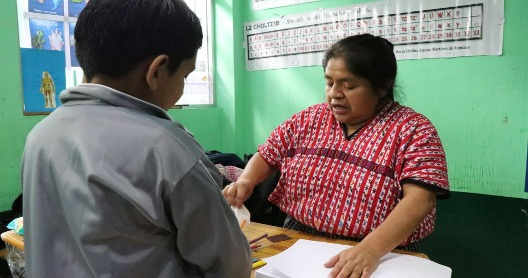
Going to school was already a daily challenge for many displaced children around the world. Now there are fears some may not return after COVID-19 lockdowns lift. One child missed two years of school while his family was avoiding social unrest in his home country of Nicaragua and then fleeing first to neighbouring Honduras, and later to Guatemala.
At the age of eight, he finally returned to the classroom at the start of Guatemala’s school year in January. His mother, Lisseth,* said he had just started making friends when COVID-19 hit the country and the government ordered the closure of all schools.
Even before the coronavirus pandemic shuttered schools around the world, disrupting the education of almost 1.6 billion students according to UNICEF, classrooms were closed to millions of displaced children. UNHCR and UNICEF worked with local CSOs in Honduras and Guatemala – as well as Jordan, Kenya and Bangladesh - to provide educational opportunities.
Similarly, following school closures in Bulgaria, refugee children initially struggled to participate in online education partly because they lacked devices, but also because of the language barrier, according to Borislav Grozdanov, a public information associate for UNHCR in Bulgaria. The Council of Refugee Women and the Bulgarian Red Cross are now providing donated laptops and tablets to refugee families and another NGO, Caritas Sofia, is offering online language courses.
“All of my five children … are taking part in the online language courses,” said Wisam, a refugee from Syria who now lives in the Bulgarian capital. “I am very happy … they can continue practicing the language. But online courses can’t replace school. My children want to go back to school because they miss their friends and their teachers.”
For more information see article by UNHCR staff.